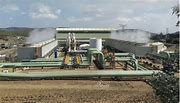Across the vibrant landscapes of Nigeria, a silent tragedy is unfolding. The fight against Lassa fever, a menacing health threat, is inadvertently claiming the lives of thousands of domestic animals. It’s not the disease itself that’s causing this devastation but the indiscriminate use of rat poison in combating it.
In every corner of the country, from bustling cities to serene villages, domestic animals like cats, dogs, chickens, pigs, and local birds are falling victim to poisoning. The African Institute of Waste Management and Environmental Studies (AIWMES) recently conducted a study shedding light on this alarming phenomenon.
Dr. Ahmed Abdullateef Tayo, the registrar at AIWMES, revealed in their quarterly environmental report that poor waste disposal practices are at the heart of this crisis.
“The improper use and disposal of rat poison in homes, streets, markets, and public areas is causing unnecessary suffering and death among domestic animals,”
Dr. Tayo emphasized.
These deaths go undetected as many animals ingest toxic substances from open gutters or trash dumps while scavenging for food. The impact extends beyond individual tragedies; it poses a significant threat to food security and public health in Nigeria.
Animals like poultry, goats, and sheep aren’t just livestock—they are lifelines for many families. When they succumb to poisoning due to human actions, communities bear not only emotional but also financial burdens. This vicious cycle has far-reaching implications beyond animal welfare.
Rat poisons contain deadly anticoagulants and neurotoxins that don’t discriminate between their intended targets—rodents—and unintended victims like pets and wildlife. Dr. Tayo stressed that these poisons disrupt ecosystems by harming natural predators that control rodent populations.
In Kaduna state, Mallam Ali Mutum lamented how negligence in poison disposal has led to widespread animal deaths:
“People throw rat poison anywhere… Birds and other animals feed from gutters and trash.”
Veterinarian Dr. James Moses echoed these concerns about animals unknowingly ingesting toxins while foraging in public spaces.
Beyond the tragic loss of life lies a potential powder keg within communities where conflicts may arise over poisoned animals or deliberate misuse of toxins against pets or livestock.
To address this pressing issue effectively:
Public Education plays a crucial role in enlightening communities about safe rodent control methods.
Safer Alternatives such as mechanical traps can be promoted over toxic baits.
Environmental Sanitation efforts must be intensified to eliminate rodent habitats.
Disease Surveillance should be prioritized alongside training programs for disease prevention.
Community Collaboration among various stakeholders is essential for implementing sustainable pest control strategies.
Dr. Tayo emphasized the need for a balanced approach:
“As we continue the fight against Lassa fever… Let’s protect our environment… by acting smarter.”
The battle against Lassa fever shouldn’t come at the cost of innocent lives within our ecosystems. It’s time to safeguard our environment, cherish our animals’ roles in society—and strive for harmony between human health needs and ecological well-being with compassion and wisdom.









Leave feedback about this